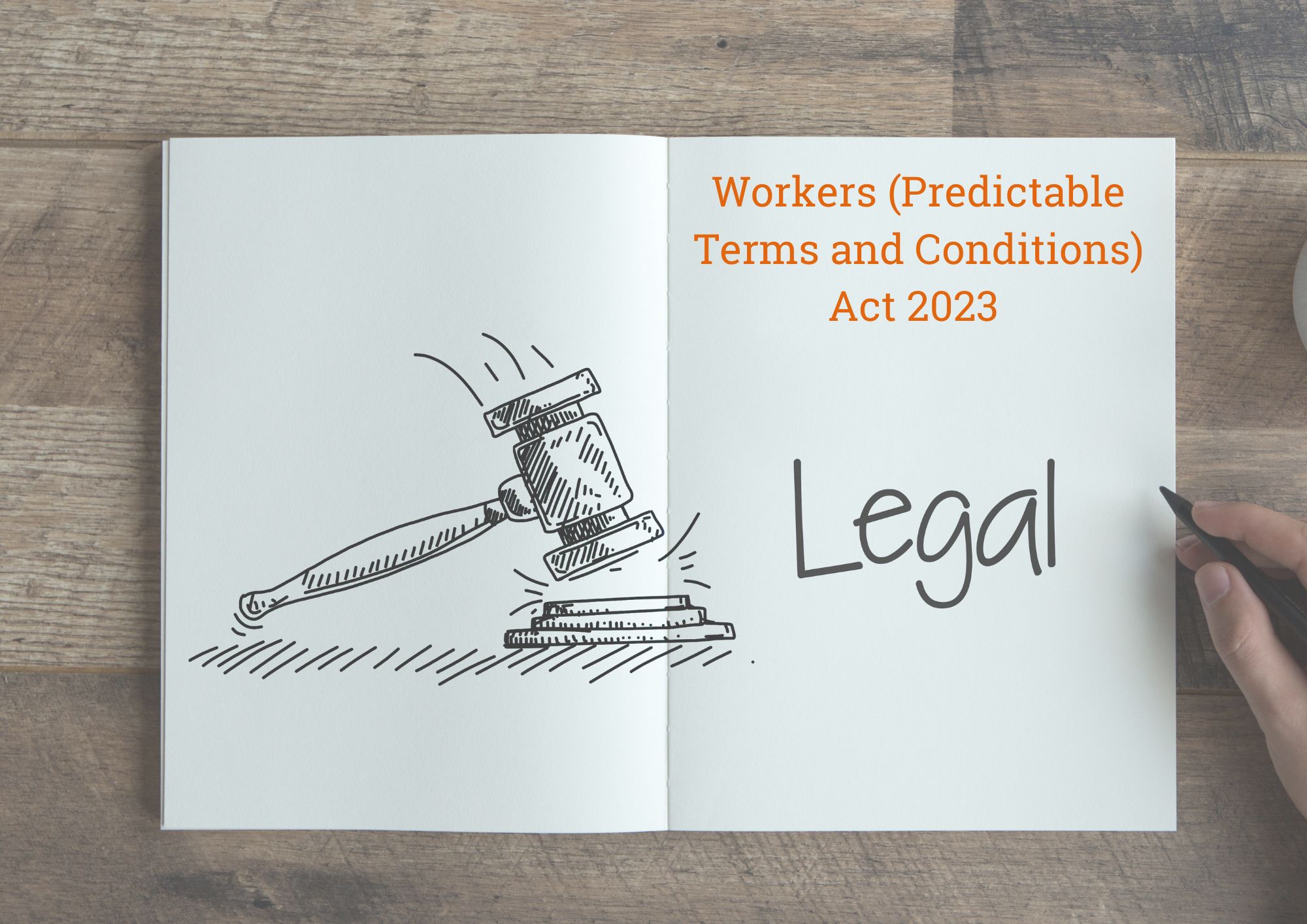On 18th September 2023, the Workers (Predictable Terms and Conditions) Act 2023 was passed by Parliament. This introduces a new statutory right for employees to request more predictable working patterns. In this article we look at why the new rules are coming in, who will benefit and what employers need to do to comply with the new law.
Why is the new Workers (Predictable Terms and Conditions) Act needed?
For some employers, the need for employees can vary greatly during the year depending on customer demand and other business factors. For example, sectors such as hospitality can be heavily affected by seasonality, with high demand in peak periods such as Christmas. This has led to an increase in flexible and zero-hour contracts which are beneficial for employers as they can easily adjust staffing levels.
As a result, many employees in the UK lack certainty in terms of the number of hours they will work in a week and when. While zero-hour contracts allow them to work flexibly and are seen as a good thing by a lot of workers, there are others who would prefer certainty in their working patterns from one week to the next. In some instances, employees are also expected to keep themselves available in case a shift comes up without any guarantee of work.
The new law seeks to solve this problem by giving employees and workers the formal right to request a more predictable working pattern. It is claimed that these changes will benefit millions of people in the UK, allowing them to have a greater say in their working patterns.
When does the new law come into effect?
It is expected that the measures in the Act and the necessary secondary legislation will come into force in 2024, giving employers time to prepare for the changes.
Will employers benefit from the new law?
As well as clear benefits to employees, it is claimed that the measures will also be good for businesses. The reasoning behind this is that employees will have more predictable terms and conditions leading to higher job satisfaction. Businesses should then see better staff retention, as employees will not need to look elsewhere for new roles with working patterns that suit them and their circumstances.
How will employees make a working pattern request?
The Government has previously indicated that (subject to parliamentary approval) all employees and workers will have this new right once it comes into force. However, they must have worked (although not continuously), for their employer for a set period before making an application. This is expected to be 26 weeks but will be detailed in the secondary legislation.
The new law will also apply to agency workers and they will be able to put in a working pattern request to either their temporary work agency or to the hiring company, provided they meet certain qualifying conditions.
What do employers need to do to prepare?
A new statutory Code of Practice will be produced by ACAS that will provide guidance on how requests for a more predictable work pattern should be made by employees and considered by employers. This will provide a framework for discussions around working arrangements that suit both sides.
The draft Code of Practice will be available for public consultation in “the coming weeks” and once available, employers should familiarise themselves with what is expected of them.
What are the grounds for employers to refuse a request?
Employers will be required to consider all requests in a reasonable manner and notify the employee of their decision within one month. Requests may be refused on specified grounds, such as
- Additional costs to the business
- Detrimental impact on the recruitment of staff
- Detrimental impact on other aspects of the business
- Insufficient work during the periods the worker has asked to work
A maximum of two requests from an employee will be allowed during any 12-month period.
Contact our employment law experts to find out more
The new Workers (Predictable Terms and Conditions) Act 2023 has the potential to bring both benefits and conflict to the workplace. Whether you are an employee with questions on the rights that you will gain, or an employer who needs to understand how your business will be affected and what you need to put in place then Backhouse Solicitors are here to help.
Contact us today to book a free initial consultation with one of our expert employment law solicitors and find the answers to all your questions.
Tel: 01245 893400
Email: info@backhouse-solicitors.co.uk
Visit: 17 Duke Street, Chelmsford, CM1 1JU
Or send us a message through the Contact Us page on this website.






